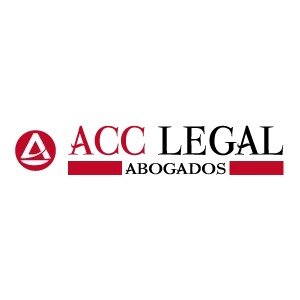Best Business Registration Lawyers in Spain
Share your needs with us, get contacted by law firms.
Free. Takes 2 min.
Or refine your search by selecting a city:
List of the best lawyers in Spain
About Business Registration Law in Spain
Business registration in Spain is a critical step for anyone looking to establish a business in the country. The process involves securing a legal identity for your business, which is essential for operations, taxation, and regulatory compliance. Spanish company law mandates that certain formalities are completed before a business can legally conduct activities. These formalities ensure businesses are recognized by the Registro Mercantil (Commercial Registry), which includes the registration of company names, deeds, and other essential details. Navigating through these requirements can be complex, hence understanding the nuances of Spanish business registration ensures compliance and smooth operation.
Why You May Need a Lawyer
When engaging in business registration in Spain, legal assistance can be beneficial for several reasons. Firstly, Spain’s legal system involves several steps that can be daunting for newcomers. Lawyers can assist with understanding the local regulations, drafting necessary documents, and ensuring all paperwork is correctly filed. Common situations where legal help may be required include choosing the appropriate business structure, handling legal disputes during registration, tax considerations, and ensuring compliance with employment laws. Lawyers can also provide guidance on specific regional requirements, helping to avoid potential legal issues down the line.
Local Laws Overview
Spain’s business registration falls under the jurisdiction of both national laws and regional requirements. The main forms of business entities recognized in Spain include the Sociedad Anónima (S.A.), Sociedad Limitada (S.L.), and other less common forms like cooperatives. Each has its specific incorporation procedures, capital requirements, and governance rules. The local Commercial Registry plays a crucial role where all companies must be registered to gain legal status. Additionally, Spanish law requires businesses to obtain a tax identification number, register for VAT, and comply with employment legislation. Understanding these laws ensures your business complies with Spanish legal standards from inception.
Frequently Asked Questions
What types of business entities can I register in Spain?
The most common are Sociedad Anónima (S.A.) and Sociedad Limitada (S.L.). There are also options for sole proprietorships and cooperatives.
How is the business registration process initiated?
You need to reserve your company name at the Central Mercantile Registry, draft the company’s deed, and then register it at the local Commercial Registry.
Can foreigners register a business in Spain?
Yes, but they must obtain a foreigner’s identification number (NIE) and may require additional permits depending on the business type.
What are the tax implications of registering a business in Spain?
Businesses need to register for tax, obtain a Tax Identification Number (CIF), and potentially register for VAT. Taxes are levied at both state and regional levels.
Is it mandatory to hire a notary public?
Yes, all company deeds must be notarized, which necessitates involving a notary public in the registration process.
How long does the business registration process take?
It can take several weeks, depending on how quickly all documents are prepared and approved by the relevant authorities.
Are there minimum capital requirements for business registration?
Yes, S.A. requires a minimum share capital of €60,000, while S.L. requires €3,000.
What documents are required for business registration?
Documents include identification for company directors, a company deed, proof of capital deposit, and certification of the reserved name.
Do I need to open a Spanish bank account?
Yes, a local business bank account is necessary for depositing initial capital and ongoing operations.
Can I change the business structure post-registration?
Yes, changes can be made but must be executed legally, often requiring updates in the Commercial Registry and potentially notarization.
Additional Resources
For business registration, the following resources can be helpful: Spain’s Central Mercantile Registry, Agencia Tributaria (Spanish Tax Agency), and Consejo General del Notariado (General Council of Notaries). These organizations provide critical information and assistance for business registrations and compliance.
Next Steps
If you require legal assistance in business registration in Spain, consider consulting with a business law attorney who specializes in Spanish corporate law. They can guide you through required steps, help prepare the necessary documents, and ensure all legal requirements are met efficiently. Additionally, engaging with a local business consultant or contacting local chambers of commerce can provide actionable insights into the Spanish business landscape and facilitate a smoother registration process.
Lawzana helps you find the best lawyers and law firms in Spain through a curated and pre-screened list of qualified legal professionals. Our platform offers rankings and detailed profiles of attorneys and law firms, allowing you to compare based on practice areas, including Business Registration, experience, and client feedback.
Each profile includes a description of the firm's areas of practice, client reviews, team members and partners, year of establishment, spoken languages, office locations, contact information, social media presence, and any published articles or resources. Most firms on our platform speak English and are experienced in both local and international legal matters.
Get a quote from top-rated law firms in Spain — quickly, securely, and without unnecessary hassle.
Disclaimer:
The information provided on this page is for general informational purposes only and does not constitute legal advice. While we strive to ensure the accuracy and relevance of the content, legal information may change over time, and interpretations of the law can vary. You should always consult with a qualified legal professional for advice specific to your situation.
We disclaim all liability for actions taken or not taken based on the content of this page. If you believe any information is incorrect or outdated, please contact us, and we will review and update it where appropriate.
Browse business registration law firms by city in Spain
Refine your search by selecting a city.















